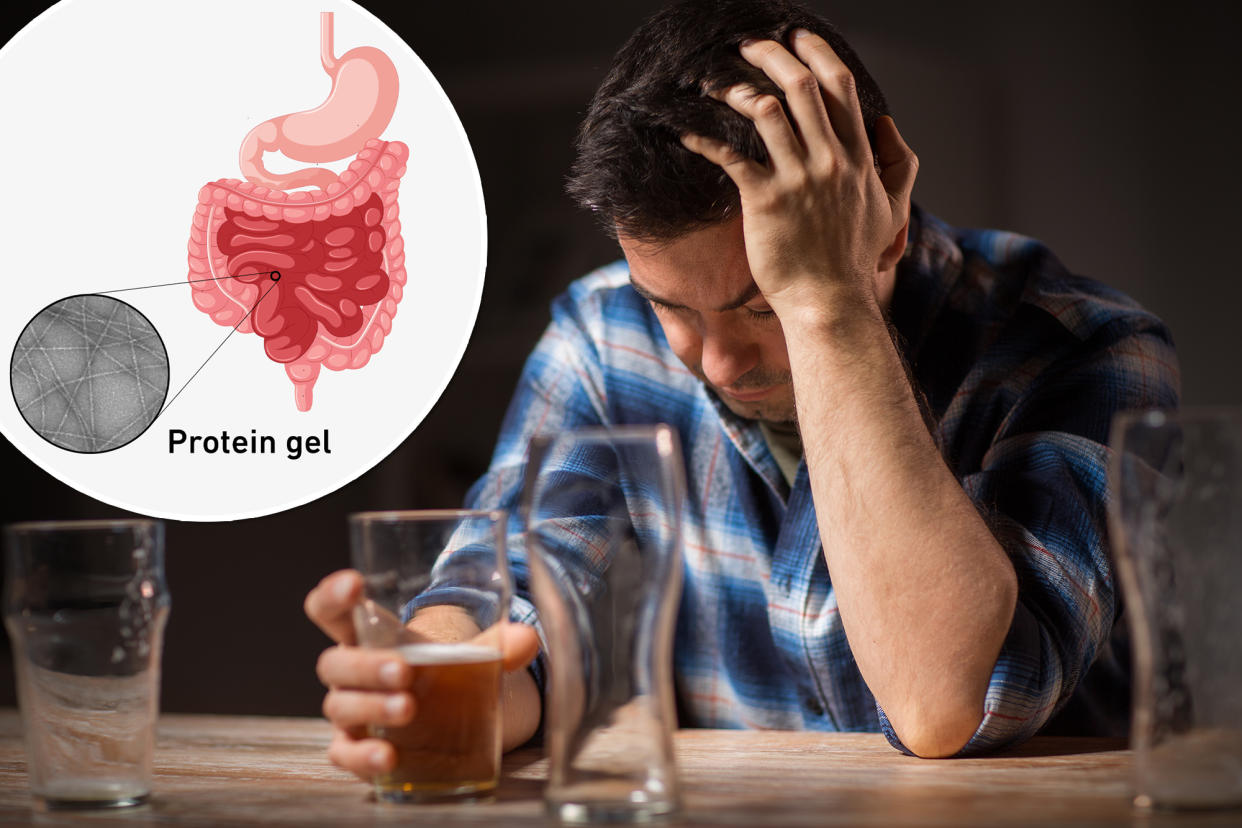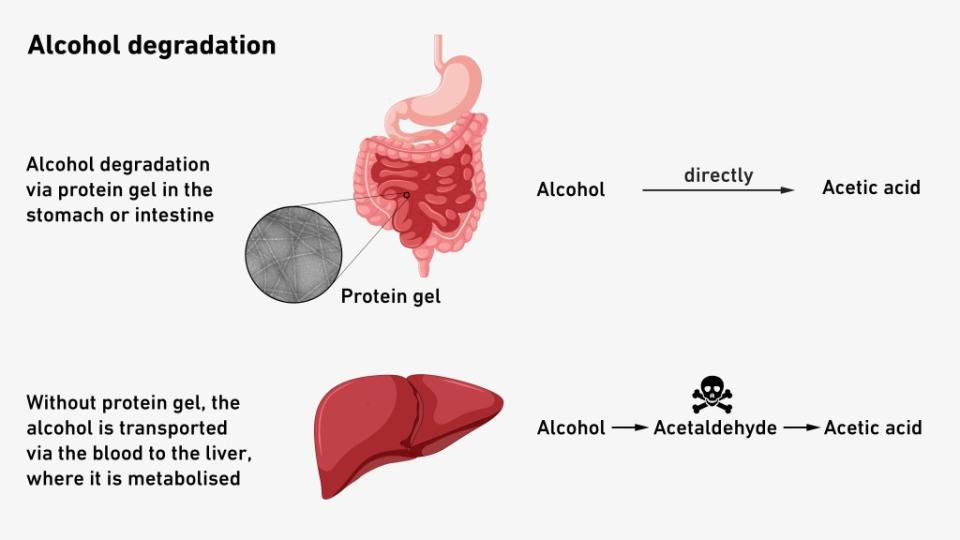Breakthrough gel could stop the harms of alcohol

Raise a glass to science.
Researchers have developed a protein gel that neutralizes alcohol before it enters the bloodstream and essentially makes it harmless.
Scientists at ETH Zurich created a gel that, when given to mice, reduced blood alcohol levels by up to 50% and protected their bodies from damage, according to SciTechDaily.
More studies are needed before the gel will be ready to test in humans, but the scientists, who published their findings Monday in Nature Nanotechnology, hope their work could eventually help prevent the 3 million deaths that occur each year worldwide due to excessive alcohol consumption.

The gel works by converting the alcohol into innocuous acetic acid before it’s metabolized by the body.
Typically, when you drink, alcohol enters the bloodstream via mucous-membrane layers in the stomach and intestines, according to the an article published in the journal Nutrients. Unlike food, which gets digested slowly via your intestinal tract, alcohol bypasses that and is directly absorbed into the bloodstream, meaning that it can quickly begin to impact all of your organs as blood circulates through your body. For reference, a single red blood cell will travel through the entire body in about one minute, which is why you can start to feel the effects of alcohol within a short time after a single drink.
As alcohol is metabolized, it produces a toxic byproduct called acetaldehyde. Although that toxin doesn’t last long — alcohol is further broken down into acetate — acetaldehyde has the potential to do serious damage to your body during its brief appearance.

Because of the potential for harm, researchers turned their focus to eliminating acetaldehyde entirely. If alcohol could immediately be converted to acetate, they reckoned, it would do no harm. In order to do that, they began with a simple recipe of whey proteins, and then eventually added iron, glucose and gold nanoparticles to produce the final product.
“The gel shifts the breakdown of alcohol from the liver to the digestive tract. In contrast to when alcohol is metabolized in the liver, no harmful acetaldehyde is produced as an intermediate product,” Dr. Raffaele Mezzenga, from the Laboratory of Food & Soft Materials at ETH Zurich, said in a release.
The researchers stressed that it’s still healthiest to avoid alcohol entirely, as multiple studies have shown that even moderate amounts of alcohol can be harmful to one’s health.

“It’s healthier not to drink alcohol at all. However, the gel could be of particular interest to people who don’t want to give up alcohol completely, but don’t want to put a strain on their bodies and aren’t actively seeking the effects of alcohol,” Mezzenga told SciTechDaily.
The gel also only works as long as there’s still alcohol in the intestinal tract. Once alcohol has already passed into the bloodstream, it won’t reverse those effects. Put another way, in theory, if you’re already feeling drunk and then consume the gel, you won’t immediately stop feeling drunk, but the gel could help reduce the harmful effects alcohol is having on the body. Taking the gel before you ever start drinking, would theoretically prevent a person from feeling drunk — but more research is needed.
To test the gel, scientists used two test groups of mice: one that was given a single dose of alcohol and one that was given alcohol regularly for 10 days. When the researchers tested the blood alcohol level of the mice 30 minutes after they received their single dose of alcohol, the gel had reduced their alcohol level by 40%. Five hours after alcohol intake, the blood alcohol levels had dropped 56%.
In the mice that were given alcohol consistently for 10 days — as a way to illustrate chronic heavy drinking — researchers found the gel still had a positive effect. Those mice had less liver damage, lost less weight, and their organs (like the spleen and intestine) showed less damage.
The scientists have applied for a patent for their gel and hope to continue with clinical trials that will eventually make the product available to people.

